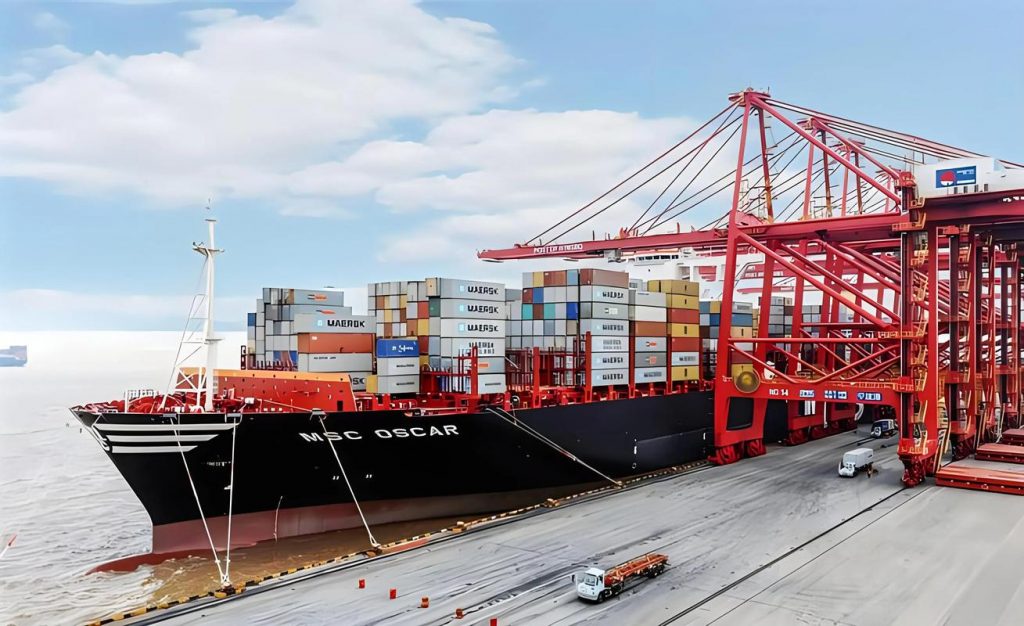
Shipping goods from China to Australia requires expertise in navigating complex customs regulations, regional trade dynamics, and logistical challenges. As two of the world’s largest trading partners, China and Australia rely on efficient freight forwarding services to ensure timely, compliant, and cost-effective cross-border deliveries. Whether importing machinery, agricultural equipment, electronics, or consumer goods, partnering with a specialized freight forwarder simplifies the process. This guide explores key considerations, from shipping methods and customs compliance to risk mitigation strategies.
- Shipping Methods: Air, Ocean, and Multimodal Options
Australia’s geographic isolation and trade policies shape its logistics landscape:
- Air Freight:
Ideal for high-value or time-sensitive goods (e.g., pharmaceuticals, electronics), air routes connect Chinese hubs like Shanghai to Sydney (Kingsford Smith Airport) or Melbourne (Tullamarine Airport). Transit times average 5–8 days, but costs are significantly higher than ocean freight. - Pro Tip: Prioritize air freight for perishables or goods requiring expedited clearance.
- Ocean Freight:
The most common mode for bulk shipments, ocean routes transit via the Pacific or Indian Oceans to major ports like Sydney, Melbourne, or Fremantle. Transit times range from 25–45 days for full container load (FCL) shipments. - Key Ports:
- Sydney: Handles general cargo and regional distribution.
- Melbourne: A hub for manufacturing and agricultural imports.
- Fremantle: Ideal for bulk commodities like minerals or grains.
- Pro Tip: Schedule shipments to avoid peak congestion (December–March) or use transshipment hubs like Singapore for flexibility.
- Multimodal Transport:
Combines ocean freight with road or rail. Cargo arriving at Fremantle moves inland via highways to Perth or Adelaide. Rail options like the Inland Rail link Sydney to Melbourne for cost-efficient overland transport.
- Customs Compliance and Documentation
Australia’s Department of Home Affairs and the Australian Border Force (ABF) enforce strict customs regulations. Essential documents include:
- Commercial Invoice: Detailed item descriptions, value, and harmonized system (HS) codes.
- Bill of Lading (B/L): Specifies cargo details and consignee information.
- Certificate of Origin: Confirms manufacturing country; benefits from China-Australia FTA tariffs (average 0–5%).
- Phytosanitary Certificate: Required for agricultural or timber products.
- Import Declaration: Filed electronically via the ABF’s Integrated Cargo System (ICS).
Australia imposes tariffs averaging 0–10%, with stricter biosecurity measures for food, plant, and animal products. A freight forwarder manages ICS filings, HS code classification, and duty payments to avoid penalties.
- Challenges and Solutions for Australia Shipments
A. Port Congestion and Infrastructure
Sydney and Melbourne ports face delays during peak seasons (December–March). Mitigate risks by:
- Using Fremantle Port for faster clearance.
- Partnering with forwarders offering bonded warehousing near ports. B. Biosecurity Measures
Australia’s strict biosecurity protocols require permits for certain goods (e.g., soil, organic materials). - Solution: Engage forwarders familiar with DAFF (Department of Agriculture, Fisheries, and Forestry) requirements. C. Inland Transportation Complexity
Moving cargo to regional hubs like Brisbane or Perth requires reliable trucking partners familiar with Australian road regulations.
- Key Services Offered by Freight Forwarders
A trusted forwarder provides tailored solutions for Australia-bound shipments:
- Customs Brokerage: Manages ICS filings, duty optimization, and HS code classification.
- Door-to-Door Logistics: Coordinates port pickup, inland trucking, and last-mile delivery to Sydney, Melbourne, or regional areas.
- Track-and-Trace Systems: Monitors shipments via ICS updates and GPS integration.
- Risk Mitigation: Offers cargo insurance and contingency plans for port strikes or weather disruptions.
- Cost Considerations
Shipping costs vary by cargo type, route, and services:
- Freight Forwarding Fees: Typically 5–15% of total shipment value.
- Ocean Freight Charges: Include terminal fees (THC) and fuel surcharges.
- Duties and Taxes: Average 5–15% of CIF (Cost, Insurance, Freight) value, influenced by HS codes.
- Inland Transportation: Costs range from $1,500–$5,000 for trucking from Sydney to Brisbane.
Request a detailed quote to compare options and avoid hidden fees.
- Frequently Asked Questions
Q: How do I expedite customs clearance in Australia?
A: Pre-register products with ABF, use AEO (Authorized Economic Operator) status, and ensure accurate HS code classification.
Q: What’s the best port for importing bulk commodities?
A: Fremantle Port is ideal for minerals and grains, while Sydney handles general cargo.
Q: Are there restrictions on used equipment imports?
A: Yes, used machinery often requires DAFF inspections and certifications. Confirm eligibility with your forwarder.
Q: How are perishable goods handled?
A: Air freight with temperature-controlled containers is preferred. Coordinate expedited customs clearance for time-sensitive cargo.
Conclusion
China’s role as a global manufacturing hub makes it a critical partner for Australia’s industries. However, navigating customs complexities, seasonal disruptions, and regional logistics requires specialized expertise. By partnering with a China to Australia freight forwarder, businesses gain access to streamlined clearance, cost-efficient routing, and risk management strategies. Whether importing industrial components or agricultural goods, professional logistics support ensures timely, compliant deliveries to Australia’s growing markets.
Optimize Your China-Australia Supply Chain
Focus on your core operations while experts handle the intricacies of cross-border shipping—from ICS filings to last-mile delivery. A trusted freight forwarder bridges the gap between global trade and Australian compliance.



